The brain is like the control center of your body. It helps you think, feel, move, and make sense of the world around you. Let’s break down how it works in simple terms.
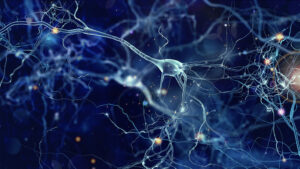
1. Parts of the Brain
- Cortex: The outer layer that looks like a walnut shell. It handles thinking, memories, and decisions. It’s where you process what you see, hear, touch, and more.
- Cerebellum: At the back of the brain, it helps with balance and coordination, making sure you don’t fall when you walk or run.
- Brainstem: At the bottom, connecting to the spine, it controls things you don’t have to think about, like breathing, heart rate, and sleeping.
- Limbic System: This is in the middle, dealing with emotions, memories, and motivation. It includes parts like the hippocampus (memory) and amygdala (emotions).
2. How the Brain Communicates
The brain sends and receives messages using cells called neurons. Imagine neurons as messengers passing notes to each other across a gap called a synapse. These messages are electrical signals that move at lightning speed, allowing you to react, think, or feel in a split second.
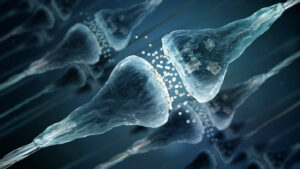
3. Learning and Memory
When you learn something new, your brain builds new connections between neurons. The more you practice, the stronger these connections become, like building a path in a forest. Over time, the path becomes clearer, and the task gets easier to do without much thought.
4. Emotions and Reactions
Your brain helps you feel emotions through chemicals called neurotransmitters. For example, dopamine makes you feel happy, while adrenaline gets you ready to face danger. Emotions can affect how you think and act – like feeling nervous before a big test or excited when you see a friend.
5. Brain Maintenance
The brain works best when it is well cared for. This means getting enough sleep, eating healthy foods, staying hydrated, exercising, and avoiding stress. Sleep is especially important because it gives your brain time to sort through information and make sense of it.
6. Protecting the Brain
Your skull and a layer of fluid cushion your brain, protecting it from injuries. However, keeping your mind sharp also means wearing helmets during sports, using seat belts, and avoiding activities that could lead to head injuries.
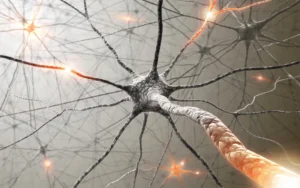
7. Amazingly Adaptable
The brain is always changing, a feature called neuroplasticity. If part of the brain is damaged, other parts can sometimes adapt to take over its function. This adaptability is what helps people recover from brain injuries over time.
8. Brain and Body Connection
The brain works closely with the body. For instance, it sends signals to your muscles when you want to move. It also receives signals from your body, like when you touch something hot, making you pull away quickly.
There are several reasons why the brain might not work as well as it should. Let’s look at some of the common ones in simple terms:
1. Lack of Sleep
Sleep is like a reset button for the brain. When you don’t get enough rest, your brain doesn’t have time to recharge and organize information properly. This can make it hard to focus, remember things, or think clearly.
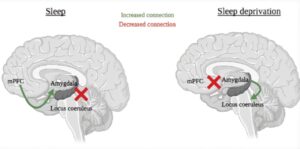
2. Poor Diet
The brain needs fuel to work, just like a car. Eating too much junk food or not getting enough vitamins and nutrients can make the brain sluggish. Healthy foods like fruits, vegetables, nuts, and fish provide the energy and nutrients the brain needs to stay sharp.
3. Dehydration
The brain is mostly water, so when you don’t drink enough, it can slow down. Dehydration can cause headaches, fatigue, and trouble concentrating.
4. Stress
Stress floods the brain with hormones like cortisol, which can make it hard to think straight or remember things. Long-term stress can even damage brain cells and shrink parts of the brain that are important for memory.
5. Lack of Physical Activity
Regular exercise improves blood flow to the brain, delivering oxygen and nutrients that help it work better. When you don’t move enough, the brain doesn’t get these benefits, leading to reduced mental sharpness.
6. Not Challenging the Brain
The brain is like a muscle—it needs exercise to stay strong. When you don’t challenge it by learning new things, solving puzzles, or staying mentally active, it can get “lazy” and not work as efficiently.
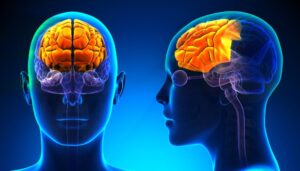
7. Health Issues
Certain health conditions, like diabetes, high blood pressure, or depression, can affect how well the brain works. Some medications might also cause brain fog or slow down mental processes.
8. Aging
As people age, it’s normal for the brain to slow down a bit. This can mean slower thinking or a little trouble with memory. However, staying mentally and physically active can help keep the brain healthy for longer.
9. Alcohol and Drug Use
Drinking too much alcohol or using certain drugs can damage brain cells and interfere with how the brain communicates. Over time, this can lead to memory problems and slower thinking.
10. Lack of Oxygen
The brain needs a constant supply of oxygen to function properly. Poor breathing habits, sleep apnea, or conditions that reduce oxygen levels can make the brain less efficient.
For More Details about Low Brain Memory, CLICK HERE
Looking for a proper solution?
Here is the solution:
Pineal Guardian
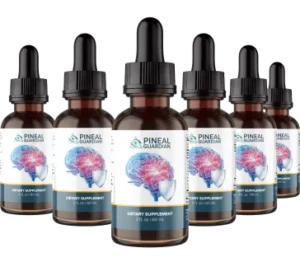
Pineal Guardian is like nothing you’ve ever tried before. It’s based on a closely guarded formula that’s said to be able to help support memory function.
With its unique blend of extremely hard-to-source ingredients, Pineal Guardian helps potentially support memory function and overall brain health.
It is designed to help support memory function and may contribute to brain health.

Pineal Guardian contents:
A unique blend of ingredients to support memory function

Many scientists suggest that the pineal gland, often called the “third eye,” plays a role in brain power and memory enhancement. The pineal gland is a small, pea-sized gland located in the center of the brain. It produces melatonin, a hormone that regulates sleep and wake cycles, which are crucial for brain health and memory consolidation.
The idea behind using Pineal Guardian (a supplement or natural remedy) is to support the pineal gland’s function, potentially boosting cognitive abilities, improving sleep quality, and enhancing memory. Some believe that protecting or “activating” the pineal gland can help increase mental clarity, focus, and overall brain function.
However, while the concept is intriguing, more research is needed to fully understand the effects and benefits of such supplements or remedies on brain power and memory.
For More Details about Low Brain Memory, CLICK HERE

